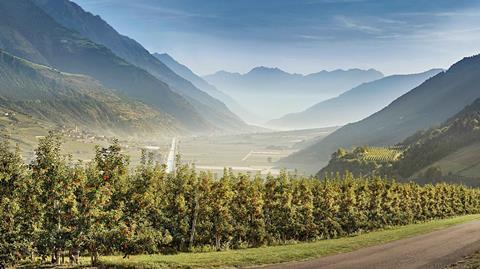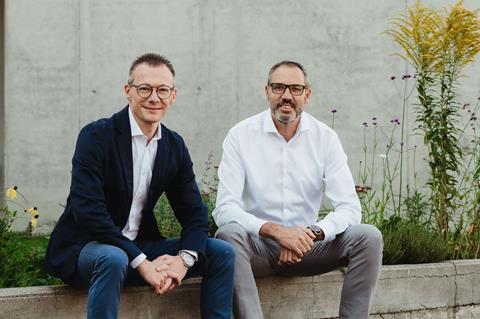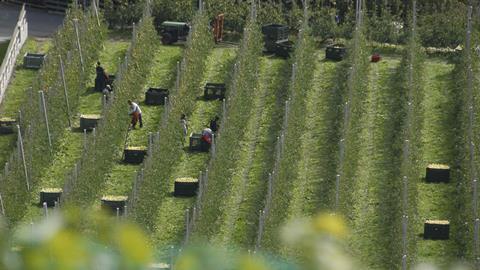Less fruit to sell, smaller sizes, faster ripening and lower market prices mean tough months ahead for companies like Vip Val Venosta
Dry and scorching summer conditions in Italy, with very high temperatures and almost no rainfall, have presented the country’s apple business with several major challenges as it heads into the new season.
Fabio Zanesco, sales manager at South Tyrol-based supplier Vip, said the heatwave was expected to mean a reduction on previously forecast harvest volumes especially across western Europe – as confirmed last week by the World Apple & Pear Association.
[Wapa offers European apple crop update | Article | Fruitnet](https://www.fruitnet.com/eurofruit/wapa-offers-european-apple-crop-update/247173.article)
“Already shortly after blossoming and fruit set, it became clear to us that production volumes in the Venosta Valley would be lower than the normal production potential, and we now estimate them to be about 15 per cent lower,” he predicted.
How large a decrease in volume depends on the variety or production area, Zanesco observed, pointing out apple orchards in the Venosta Valley are located at very different elevations that range from 500m to 1,000m.
“In the lower areas, the persistent heat affected volumes more,” he noted. “The higher areas, on the other hand, were luckier, since the heat gave a respite and allowed the apples to grow more.”
Volumes of traditional varieties are likely to fall more sharply than for club apples, since production of the latter was due to rise significantly.

Challenges in store
Good quality is anticipated, Zanesco said, but the challenge will be to maintain the quality of apples kept in storage, because the high temperatures led to some premature ripening.
“The challenge will be to sell the most mature lots in the first part of the campaign and to properly store those that can stay longer in the cold rooms,” he conceded.
“We are used to focus our attention on the second half of the season, as at elevation we harvest later than other players, and this year it will be even more important to ensure adequate quality in winter and especially in spring.”
The apples’ colouring, meanwhile, is set to be less intense. That’s because in July and August the orchards were not as cold as usual during the night – so the temperature difference between day and night was much smaller.
“Already these nights, the temperature has dropped well below 10 degrees, which makes us optimistic about the colour and crispness of the apples we are currently harvesting,” Zanesco added.
In terms of trading conditions, it is expected that there will be a lot of intense pressure on the apple market during the coming campaign.
Despite its emphasis on quality, Vip will also have to face a saturated market with significantly reduced selling prices and rising costs.
“With skyrocketing raw material and energy costs, producers shoulder at least 10 cents more per kilo in out-of-pocket expenses,” Zanesco predicts.
“Sales prices will necessarily have to increase in the coming period, although it will not be easy to find the balance between inflationary pressure and heavily under pressure consumption.”

Organic offer
For organic apples, the average fruit size is a few millimetres smaller than usual at around 70-80mm. “This is also due to the high heat,” comments Gerhard Eberhöfer, organic sales manager at Vip. “The plants went into protection in order to survive and the apples did not grow as much as they could”.
However, he does not see this as a problem. “Organic consumers are well aware that it is certainly not the size of the fruit that determines its quality.”
Vip’s new organic campaign began on 20 August with Gala Bio. It will then move on to Red Delicious Bio, followed by Pinova Bio. Unlike other varieties, Golden Delicious stocks will last for 12 months.
Overall volumes of organic apples will be down about 20 per cent compared with ‘normal’ crops and a further 5 per cent down compared with integrated production, since it is more difficult to maintain organic production when weather conditions are out of the ordinary.
But Eberhöfer has no doubts about the fruit’s quality: “Vip’s well-known claim ‘First Class Apple Partner’ refers not only to its service excellence, but also to product excellence,” he comments. “Suffice it to say that we only sell Bioland or Demeter certified organic products.”
These certificates are a guarantee for customers, especially in those markets where there is a clear preference for such ‘extra-plus’ standards.




